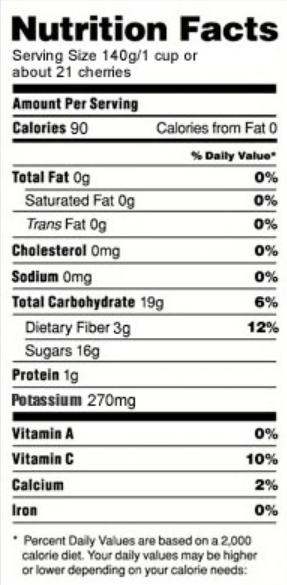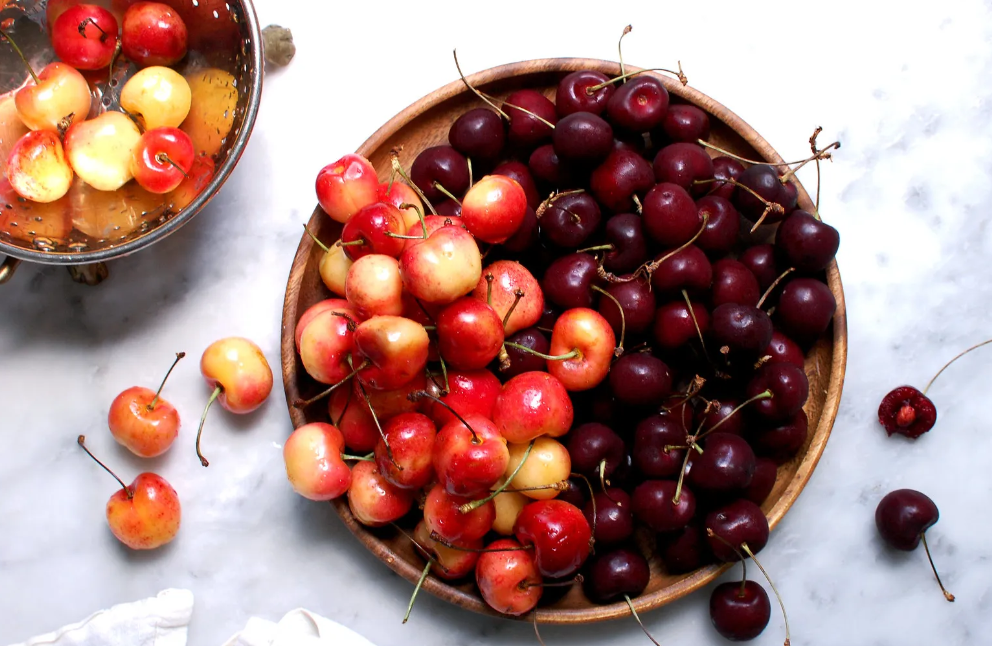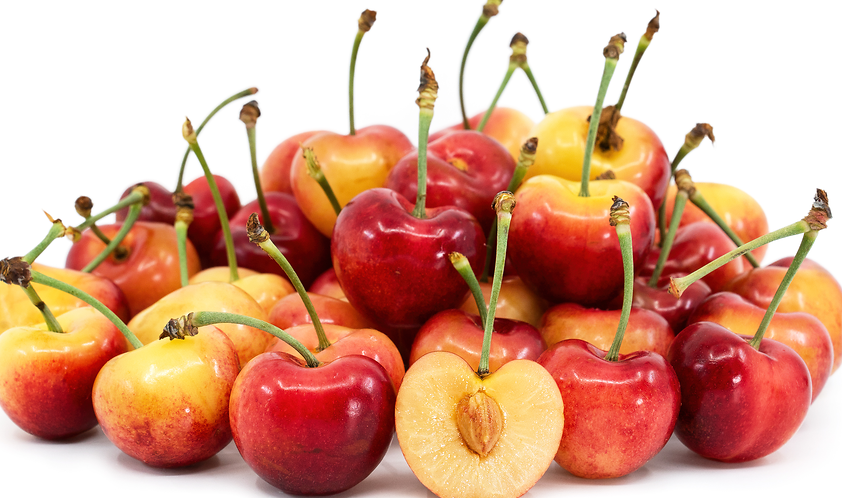This Article is Approved By » Esther Howard (Nutritionist) & Dr. Jane Cooper (Expert Dietitian)
Rainier cherries, with their sunshine-yellow skin and blush-pink blush, are visually captivating and pack a surprising nutritional punch.
But the question remains: are Rainier cherries good for you? Like the fruit itself, the answer is a delightful blend of sweet and tart – a resounding yes!
This article delves deep into the world of Rainier cherries, exploring their nutritional profile, health benefits, and potential downsides. So, buckle up and get ready to discover the juicy truth about this delightful fruit.
Are Rainier Cherries Good for You?
Yes, Rainier cherries are good for you. They are full of vitamins and antioxidants. They can help you sleep better, lower blood sugar, and reduce inflammation. They are also good for your heart and skin. So, eating Rainier cherries can be very healthy.
Nutritional Profile of Rainier Cherries
Rainier cherries are low in calories (around 86 per cup) but bursting with essential nutrients. Here’s a quick snapshot:
- Vitamins: Rich in vitamin C (a powerful antioxidant), with smaller amounts of vitamins A, E, and K.
- Minerals: A good source of potassium, essential for healthy blood pressure and muscle function. Additionally, they contain magnesium, iron, and copper.
- Fiber: Dietary fiber, crucial for gut health and digestion, is present in each juicy bite.
- Antioxidants: Packed with anthocyanins and other antioxidants, offering protection against cell damage and chronic diseases.

But wait, there’s more! Rainier cherries also boast unique bioactive compounds like ellagic acid and quercetin, further enhancing their health potential.
Health Benefits of Indulging in Rainier Cherries
Now, let’s dive into the juicy details of how Rainier cherries can benefit your well-being:
- Boosts Immunity: The high vitamin C content makes Rainier cherries excellent allies in your fight against infections.
- Promotes Heart Health: Antioxidants help combat free radicals, reducing the risk of heart disease. Additionally, potassium supports healthy blood pressure.
- Aids Digestion: Dietary fiber keeps your gut happy and digestion smooth, promoting overall gut health.
- Manages Inflammation: Anthocyanins are anti-inflammatory, offering potential benefits for arthritis and gout.
- Potential Anticancer Benefits: Studies suggest that ellagic acid in Rainier cherries might have anti-cancer properties, although further research is needed.
- May Improve Sleep: Melatonin, a hormone naturally present in cherries, could promote better sleep quality.
Potential Downsides of Rainier Cherries

While generally safe, keep these pointers in mind:
- Moderation is Key: Enjoy Rainier cherries in moderation due to their natural sugar content.
- Beware of Allergies: Some people might be allergic to cherries and experience symptoms like itching, swelling, or anaphylaxis. Consult a healthcare professional if you have concerns.
- Pesticide Residues: Opt for organic Rainier cherries whenever possible to minimize pesticide exposure.
Incorporate Rainier Cherries into a Healthy Diet
Ready to savor the goodness of Rainier cherries? Here are some tips:
- Choose Ripe Fruit: Look for firm cherries with vibrant yellow skin and no blemishes.
- Store them Properly: Keep them refrigerated in the crisper drawer for up to 5 days.
- Enjoy Them Fresh: Savor their refreshing taste as a healthy snack.
- Get Creative: Add them to salads, yogurt, and smoothies, or bake them into delicious desserts.

The Verdict
Rainier cherries offer a delightful combination of flavor, nutrients, and potential health benefits. Enjoy them in moderation, and you’ll add sunshine (and good health) to your life!
Resources & References
Disclaimer: This article provides general information only and is not a substitute for professional medical advice. Always consult a healthcare professional before changing your diet or lifestyle.
FAQs About Rainier Cherries
What makes Rainier cherries different from other cherries?
Rainier cherries stand out for their unique appearance with sunshine-yellow skin and a blush-pink blush. Besides aesthetics, they have a sweeter and milder flavor than Bing cherries, with a firmer texture.
When are Rainier cherries in season?
Their season is relatively short, typically extending from mid-June to early August. So, please keep your eyes peeled during that timeframe to capture their fleeting deliciousness!
How long do Rainier cherries last?
Appropriately stored in the refrigerator, they can stay fresh for 5 days. Opt for firm cherries free of blemishes for a longer shelf life.
Can I freeze Rainier cherries?
Absolutely! Pitting them first is recommended. Flash freeze on a baking sheet, then transfer to airtight containers for extended storage. Frozen Rainier cherries are great for baking smoothies or adding summer flavor to winter dishes.
Are Rainier cherries good for baking?
Their sweet and delicate flavor makes them perfect for pies, cobblers, tarts, and muffins. However, remember they might soften more readily than other cherry varieties during baking. Adjust your recipe or baking time accordingly.
Are there any health benefits to eating Rainier cherries?
Yes, indeed! Packed with vitamins, antioxidants, and fiber, they offer potential health benefits like promoting heart health, boosting immunity, and aiding digestion. Additionally, studies suggest potential anti-inflammatory and even anti-cancer properties.

